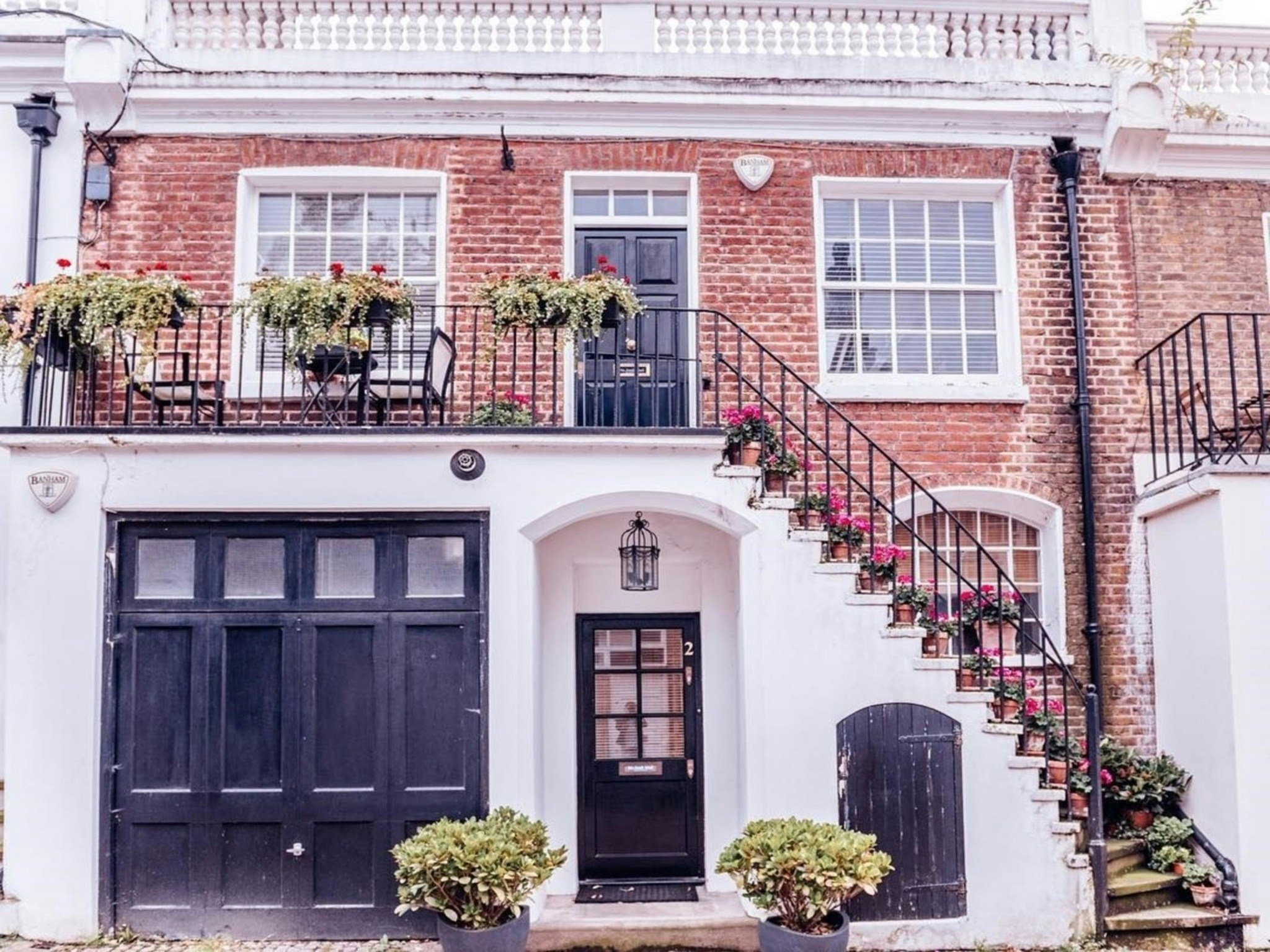
Advice to landlords on keeping their property safe for tenants
August 15, 2025 | Landlords
Do you want to sell or let a property?
Book a free property sales or letting valuation today with your local Armaani agent
Advice to landlords on keeping their property safe for tenants
Advice to landlords on keeping their property safe for tenants
At Armaani Estates, we understand that as a landlord, your top priority is to ensure that your property is safe, secure, and compliant with all legal obligations. A well-maintained and hazard-free home not only meets legal standards—it helps build long-lasting, successful tenancies.
Your property must be free from hazards, have all required safety certificates in place, and offer your tenants a comfortable and secure environment. Failing to comply with landlord regulations could result in penalties from your local authority or action by environmental health.
You also have a duty to vet tenants thoroughly. Selecting responsible tenants who report issues promptly and treat the property with care helps protect your investment long-term.
It’s important to stay up to date with landlord legislation—laws are always evolving. For example, Awaab’s Law is expected to apply to private landlords, introducing strict timeframes for addressing damp and mould.
If you’re unsure whether your rental meets current legal standards, read our guide below. And if you need personalised advice, get in touch with Armaani Estates—we’re here to help.
General Property Safety
To keep your tenants safe, regular inspections are essential. These should cover the building's structure, external areas, and internal fixtures. If you spot a hazard—address it immediately.
The Housing Health and Safety Rating System (HHSRS) is a useful tool to assess risk in your property. Local councils use it, but landlords can benefit from reviewing it too.
We also recommend routine tenancy inspections. These not only ensure property upkeep but also help maintain your insurance validity—check your policy for the required inspection frequency.
Notice of Entry
Under the Housing Act 1988, tenants have the right to "quiet enjoyment" of the property. You must give at least 24 hours' written notice before entering for inspections or repairs. However, giving a few days’ notice is often better received.
Only in emergencies (e.g., gas leak, fire) can you enter without notice.
Utility Safety
Electrical Safety
You must ensure all electrical installations are safe.
A qualified electrician should conduct an Electrical Installation Condition Report (EICR) every 5 years.
Portable appliances (kettles, toasters, etc.) aren’t legally required to be tested, but PAT testing is strongly recommended.
Gas Safety
All gas appliances must be installed and serviced by a Gas Safe registered engineer.
A Gas Safety Check is required annually.
Tenants must be given a copy of the gas safety certificate before they move in, or within 28 days.
Water and Legionella
You’re responsible for maintaining plumbing and sanitation.
You must assess the risk of Legionella. Professional testing isn’t a legal requirement but is best practice.
Fire Safety
You must install smoke alarms on every floor.
A carbon monoxide alarm must be installed in rooms with solid fuel appliances or gas boilers.
Escape routes must be clearly accessible.
Furniture must meet fire safety regulations.
For HMOs (Houses in Multiple Occupation), fire alarms and extinguishers are mandatory.
Conduct regular fire risk assessments.
Security
Securing your rental is essential for both tenant safety and insurance purposes.
Upgrade locks, doors, and windows where necessary.
Consider installing modern locking systems or a burglar alarm to deter intruders.
If your property lacks basic security features, it could affect your ability to claim on insurance in case of a break-in.
Outdoor Safety & CCTV
External security is just as important:
Motion-sensor lighting can deter unwanted visitors.
If you’re considering CCTV, ensure it doesn’t infringe on tenant or neighbour privacy.
You must:
Have a valid reason for installation
Inform tenants and neighbours
Use clear signage
Limit camera angles to your property only
FAQs – Safety in Armaani Estates Properties
What are the most common hazards?
Fire risks
Faulty electrics
Damp and mould
Risk of falls
Structural issues
How do I check electrical safety?
Use a qualified electrician from the Electrical Safety Register.
Obtain an EICR every 5 years.
What are the legal fire safety requirements?
Smoke alarms on each floor
Carbon monoxide alarms
Escape routes
Fire-safe furniture
Fire alarms/extinguishers for HMOs
What should go in a tenant safety pack?
Tenancy agreement
Safety certificates
Appliance instructions
Fire safety advice
Alarm and locking instructions
Inventory
Condensation and mould prevention guide
Emergency contacts
At Armaani Estates, we take your responsibilities seriously and are here to support landlords every step of the way. If you’re unsure whether your property is compliant or want a full safety audit, contact our expert team today. We'll help you stay legally sound and tenant-ready.
Contact Armaani Today
Advice to landlords on keeping their property safe for tenants
August 15,2025 | Landlords
Advice to landlords on keeping their property safe for tenants
At Armaani Estates, we understand that as a landlord, your top priority is to ensure that your property is safe, secure, and compliant with all legal obligations. A well-maintained and hazard-free home not only meets legal standards—it helps build long-lasting, successful tenancies.
Your property must be free from hazards, have all required safety certificates in place, and offer your tenants a comfortable and secure environment. Failing to comply with landlord regulations could result in penalties from your local authority or action by environmental health.
You also have a duty to vet tenants thoroughly. Selecting responsible tenants who report issues promptly and treat the property with care helps protect your investment long-term.
It’s important to stay up to date with landlord legislation—laws are always evolving. For example, Awaab’s Law is expected to apply to private landlords, introducing strict timeframes for addressing damp and mould.
If you’re unsure whether your rental meets current legal standards, read our guide below. And if you need personalised advice, get in touch with Armaani Estates—we’re here to help.
General Property Safety
To keep your tenants safe, regular inspections are essential. These should cover the building's structure, external areas, and internal fixtures. If you spot a hazard—address it immediately.
The Housing Health and Safety Rating System (HHSRS) is a useful tool to assess risk in your property. Local councils use it, but landlords can benefit from reviewing it too.
We also recommend routine tenancy inspections. These not only ensure property upkeep but also help maintain your insurance validity—check your policy for the required inspection frequency.
Notice of Entry
Under the Housing Act 1988, tenants have the right to "quiet enjoyment" of the property. You must give at least 24 hours' written notice before entering for inspections or repairs. However, giving a few days’ notice is often better received.
Only in emergencies (e.g., gas leak, fire) can you enter without notice.
Utility Safety
Electrical Safety
You must ensure all electrical installations are safe.
A qualified electrician should conduct an Electrical Installation Condition Report (EICR) every 5 years.
Portable appliances (kettles, toasters, etc.) aren’t legally required to be tested, but PAT testing is strongly recommended.
Gas Safety
All gas appliances must be installed and serviced by a Gas Safe registered engineer.
A Gas Safety Check is required annually.
Tenants must be given a copy of the gas safety certificate before they move in, or within 28 days.
Water and Legionella
You’re responsible for maintaining plumbing and sanitation.
You must assess the risk of Legionella. Professional testing isn’t a legal requirement but is best practice.
Fire Safety
You must install smoke alarms on every floor.
A carbon monoxide alarm must be installed in rooms with solid fuel appliances or gas boilers.
Escape routes must be clearly accessible.
Furniture must meet fire safety regulations.
For HMOs (Houses in Multiple Occupation), fire alarms and extinguishers are mandatory.
Conduct regular fire risk assessments.
Security
Securing your rental is essential for both tenant safety and insurance purposes.
Upgrade locks, doors, and windows where necessary.
Consider installing modern locking systems or a burglar alarm to deter intruders.
If your property lacks basic security features, it could affect your ability to claim on insurance in case of a break-in.
Outdoor Safety & CCTV
External security is just as important:
Motion-sensor lighting can deter unwanted visitors.
If you’re considering CCTV, ensure it doesn’t infringe on tenant or neighbour privacy.
You must:
Have a valid reason for installation
Inform tenants and neighbours
Use clear signage
Limit camera angles to your property only
FAQs – Safety in Armaani Estates Properties
What are the most common hazards?
Fire risks
Faulty electrics
Damp and mould
Risk of falls
Structural issues
How do I check electrical safety?
Use a qualified electrician from the Electrical Safety Register.
Obtain an EICR every 5 years.
What are the legal fire safety requirements?
Smoke alarms on each floor
Carbon monoxide alarms
Escape routes
Fire-safe furniture
Fire alarms/extinguishers for HMOs
What should go in a tenant safety pack?
Tenancy agreement
Safety certificates
Appliance instructions
Fire safety advice
Alarm and locking instructions
Inventory
Condensation and mould prevention guide
Emergency contacts
At Armaani Estates, we take your responsibilities seriously and are here to support landlords every step of the way. If you’re unsure whether your property is compliant or want a full safety audit, contact our expert team today. We'll help you stay legally sound and tenant-ready.
Contact Armaani
Do you want to sell or let a property?
Book a free property sales or letting valuation today with your local Armaani agent


